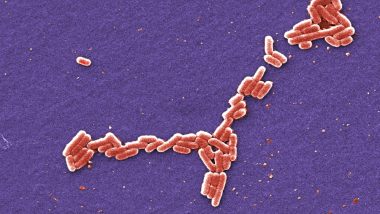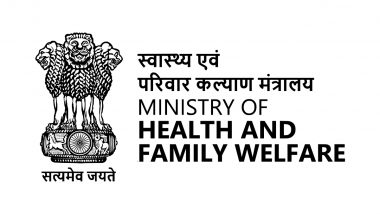In a stunning new development, scientists were able to detect a gene responsible for antibiotic resistance in superbugs in the Arctic, 12,000km away from where it originated – in New Delhi. A total of 131 genes were collected from soil samples from the Kongsfjorden region in the Arctic, and the most notable was the blaNDM-1 or NDM-1 protein, which originated in India. David Graham, a professor of Ecosystems Engineering at Newcastle University and the lead researcher of the study, said that the gene could have reached there through either wildlife, faecal matter of birds or travelling human beings. The discovery of these genes in a pristine environment, thousands of kilometres away from its origin, points to a rather grim scenario. "Encroachment into areas like the Arctic reinforces how rapid and far-reaching the spread of antibiotic resistance has become, confirming solutions to antibiotic resistance must be viewed in global rather than just local terms," said Professor Graham.
What is New Delhi Metallo-beta-lactamase 1 or blaNDM-1 Protein?
The New Delhi Metallo-beta-lactamase 1 or blaNDM-1 protein is an enzyme that makes bacteria resistant, broad-spectrum antibiotics, especially the carbapenem group. These medicines are considered to have the broadest spectrum among all antibiotics. They work by inactivating proteins responsible for synthesising the cell walls of bacteria, leading to their death. How to Take Antibiotic Medicines To Prevent Side Effects Like Diarrhoea.
But the NDM-1 gene proteins are so strong that they can even resist carbapenems, one of the most powerful drugs in the world today. It was discovered first in 2008 in a Swedish patient of Indian origin. Single isolates of two types of bacteria -- E. coli and K.pneumoniae – were shown to have the drug-resistant genes.
Medical science is unclear about what led to the creation of such a superbug, which was later detected in the bacteria in India, Pakistan, UK, US, Canada and Japan.
Although the commonest bacteria with the NDM-1 are E.coli and K.pneumoniae, the drug-resistant gene can be spread from one strain of bacteria to another by means by horizontal gene transfer. What is Antibiotic Resistance and How You Can Prevent It.
Why is NDM-1 Deadly?
Dr John Conly, Professor of Medicine, Microbiology and Infectious Diseases and Pathology and Laboratory Medicine at the Centre for Antimicrobial Resistance at the University of Calgary, Canada told World Health Organization says that the NDM-1 protein makes the bacteria resistant to any drug. He lists down five major concerns about the drug-resistant superbug.
• No antibiotic drug can treat it.
• There is no significant drug development for antimicrobials.
• Genes can be spread from one bacteria to another.
• NDM-1 is found in E.coli, one of the commonest bacteria in the human population.
• Two drugs potentially capable of treating these multi-drug resistant strains can cause kidney damage in a third of the population.
Perhaps the scariest thing about the spread of NDM-1 gene is that the world will be pushed back to an era where there were no antibiotics. With no treatment options available, humans may die of infections that were once easily treated with antibiotics. A doomsday-like scenario will become a reality if the genetic code for NDM-1 moves from one strain to another.
Antibiotic resistance is one of the most serious medical issues in the world today. It occurs when the bacteria acquire resistance to certain antibiotics that were meant to kill them. When they become drug-resistant, the medicines meant to treat them become obsolete. And medical researchers have to scamper to find newer medicines to stay one step ahead of the bacteria.
Scientists believe that by 2050, around 10 million people will lose their lives to drug-resistant bacteria. In fact, abuse of antibiotics has resulted in a situation where 70 percent of the bacteria today are resistant to at least one drug used to treat them.
(The above story first appeared on LatestLY on Jan 29, 2019 01:13 PM IST. For more news and updates on politics, world, sports, entertainment and lifestyle, log on to our website latestly.com).













 Quickly
Quickly





















